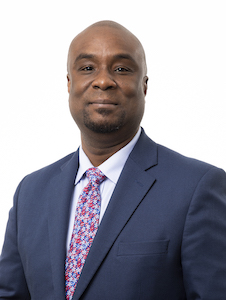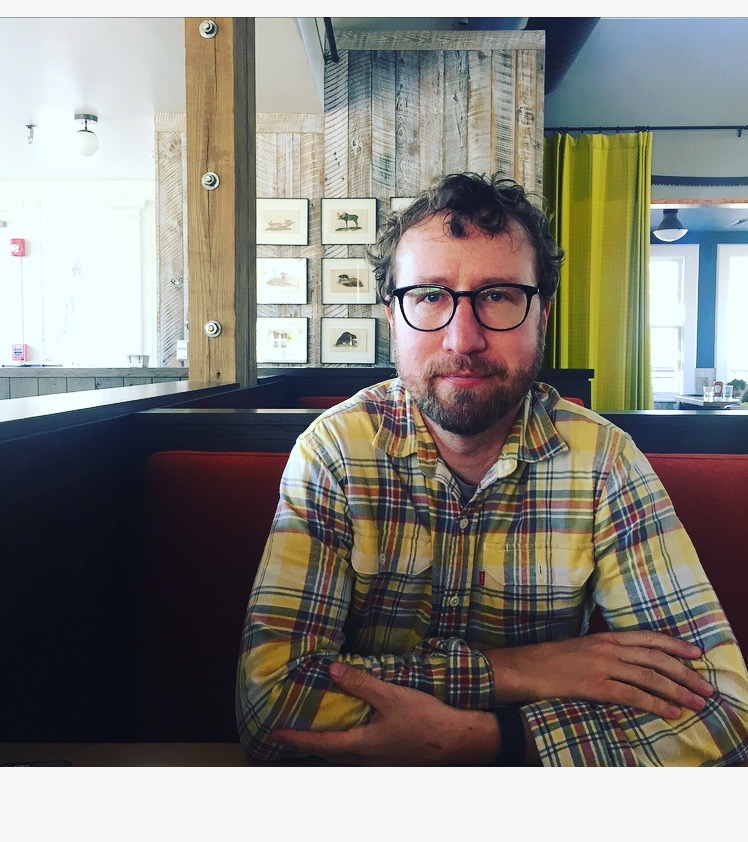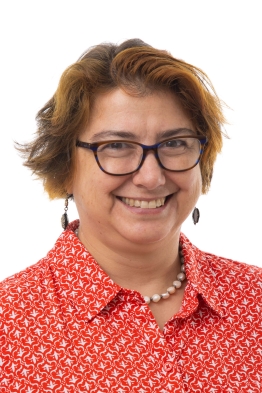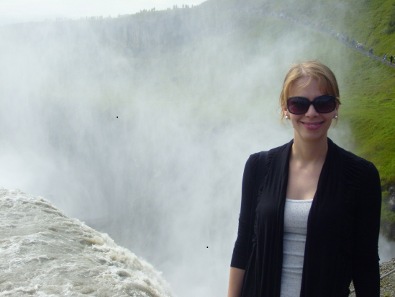Post-Baccalaureate Certificate in College English Teaching
The College English Teaching Certificate program provides a credential for current teachers and prospective English teachers already holding a Master's degree in another field who are interested in earning the SACSCOC-mandated 18 graduate credit hours in-discipline required to teach English at technical colleges, in first-year writing courses, or in specialized secondary education contexts.
Course offerings in pedagogical, literary, and creative classes give students greater range and marketability as teachers. Further, the College English Teaching Certificate allows for salary growth for those already in the teaching profession.
A program sheet, which provides a required coursework sequence, is available for download in the Courses tab below.
College English Teaching Certificate students are required to take at least two graduate pedagogy seminars, aligned with the program's focus on early college teaching, along with graduate-level courses on literature and writing, selected in consultation with the English Graduate Program Coordinator. Students will submit a portfolio of teaching materials as their program capstone. Students who satisfactorily complete the program and wish to pursue the Master of Arts in English may have the opportunity to apply their certificate credits toward the degree.
Program Location
Carrollton Campus, Online
Method of Delivery
This program can be face-to-face, hybrid, or online, depending on the student's course selections.
Accreditation
The University of West Georgia is accredited by The Southern Association of Colleges and Schools Commission on Colleges (SACSCOC).
Credit and transfer
Total semester hours required: 18
Graduate students may be able to reduce their cost through prior learning, previous degrees earned at UWG, or transfer credits. We have created a tool to help students estimate their tuition costs.
This program may be earned entirely online, entirely face-to-face, or anything in between.
Save money.
UWG is often ranked as one of the most affordable accredited university of its kind, regardless of the method of delivery chosen. In addition, online courses and programs can mean a cost-savings in many non-evident ways: No more high gas charges. No childcare needed. The flexibility can allow one to maintain a job while attending school. Regardless of state residency, out-of-state non-resident students are not charged non-resident tuition for online course credit hours.
Details
- Total tuition costs and fees may vary, depending on the instructional method of the courses in which the student chooses to enroll.
- The more courses a student takes in a single term, the more they will typically save in fees and total cost.
- Face-to-Face or partially online courses are charged at the general tuition rate and all mandatory campus fees, based on the student's residency (non-residents are charged at a higher rate).
- Fully or entirely online course tuition rates and fees my vary depending on the program. Students enrolled in exclusively online courses do not pay non-Resident rates.
- Together this means that GA residents pay about the same if they take all face-to-face or partially online courses as they do if they take only fully online courses exclusively; while non-residents save money by taking fully online courses.
- One word of caution: If a student takes a combination of face-to-face and online courses in a single term, they will pay both all mandatory campus fees and the higher eTuition rate.
- For the cost information, as well as payment deadlines, see the Student Accounts and Billing Services website
There are a variety of financial assistance options for students, including scholarships and work study programs. Visit the Office of Financial Aid's website for more information.
Coursework
It is possible for students to complete the program in three semesters through a blend of online and in-person classes; students also have the flexibility to spread out their coursework to fit their schedules.
Downloads
General
Topics rotate: Medieval Literature: An examination of medieval English literature in its various aspects, considering texts in their historical context. Renaissance Literature: An investigation of Renaissance literature in its various aspects, including, but not limited to, poetry, prose, and drama, and a consideration of that literature as a part and product of its historical period. Seventeenth Century British Literature: An investigation of significant issues, themes, and ideologies in selections of seventeenth-century British literature studied in terms of their original cultural context. Eighteenth Century British Literature: A topic-centered examination of drama, fiction, poetry and other textual expression from Restoration and eighteenth-century Britain. Works may be studies in their historical, political, cultural and aesthetic context. May be repeated for credit as topic varies.
Topics rotate: British Romanticism: An investigation of issues, themes, and ideologies in selections of British Romantic literature studies in terms of their original cultural context. Victorian Literature: An in-depth analysis of Victorian literature in its original historical, political, cultural and aesthetic contexts. Twentieth-Century British Literature: An in-depth examination of selected twentieth-century texts from the British Isles studied in the context of relevant social, political and cultural issues. Contemporary British and American Literature: An examination of selected texts produced in the last thirty years in the British Isles and the United States. May be repeated for credit as topic varies.
Topics rotate: Colonial and Early American Literature: An examination of representative literary works from exploration and discovery through the era of the new American republic. American Romanticism: An examination of representative American literary works from the nineteenth century through the Civil War. American Realism and Naturalism: An examination of the American literary arts based in an aesthetic of accurate, unromanticized observation/representation of life and nature that flourished in the post-Civil War era. May be repeated for credit as topic varies.
Topics Rotate: Twentieth-Century American Literature: An in-depth examination of ideas and issues prevalent in twentieth-century American literature in its historical, political, cultural and aesthetic context. Contemporary British and American Literature: An examination of selected texts produced in the last thirty years in the British Isles and the United States. May be repeated for credit as topic varies.
An examination of a topic in literature, theory, and/or writing that transcends the boundaries of the fixed curriculum. May be repeated for credit as topic varies.
A tightly focused examination of some aspect of pre-nineteenth-century British literature in its historical, ideological, and/or cultural context. The topic for this course varies. May be repeated for credit as topic varies.
A tightly focused examination of some aspect of pre-Civil War American literature in its historical, ideological, and/or cultural context. The topic for this course varies. May be repeated for credit as topic varies.
A tightly focused examination of some aspect of post-nineteenth-century British literature in its historical, ideological, and/or cultural context. The topic for this course varies. May be repeated for credit as topic varies.
A tightly focused examination of some aspect of post-Civil War American literature in its historical, ideological, and/or cultural context. The topic for this course varies. May be repeated for credit as topic varies.
Variable topic course focused on strategies for teaching of writing and literature. Sample topics include Teaching Writing, Creative Writing Pedagogy or "Teaching American Literature."
Study of a specific theme, critical approach, and/or concept that transcends boundaries established by the other 6000-level offerings in the program. Typical offerings may include Transatlantic Influences in Modernist Literature, Literature of Migration and Settlement, and Theory and Praxis of Creative Writing. May be repeated for credit as topic varies.

Stacy Boyd, Ph.D.
Associate Professor
Kevin Casper, Ph.D.
Professor of English
Chad Davidson, Ph.D.
Executive Director of Global Engagements and Cultural Programming
Maria Doyle, Ph.D.
Professor & Graduate Coordinator of English
Patrick Erben, Ph.D.
Professor & English Program Coordinator
Gregory Fraser, Ph.D.
Professor of English
Rebecca Harrison, Ph.D.
Professor of English
Leah Haught, Ph.D.
Professor of English & Coordinator for Publishing and Editing Certificate
Angela Insenga, Ph.D.
Professor of English and Coordinator of Film Studies
Laura Miller, Ph.D.
Professor of English
Claudia Mitchell
Assistant Professor
Margaret Mitchell, Ph.D.
Professor of English
Alison Umminger, Ph.D.
Professor of EnglishGuidelines for Admittance
- All graduate applicants must complete the online Graduate Application. A current application fee of $55 is required.
- Applicants should also review the Graduate Studies Website for individual program specific requirements and tasks that must be completed prior to admission. See Graduate Studies Application Process.
- International applicants are subject to additional requirements and application deadlines. See Procedures for International Students.
- Official transcripts from all post-secondary schools attended are required and should be sent directly to the UWG Graduate Admissions Office.
Program Specific Admittance Guidelines
Bachelor's degree with a minimum undergraduate GPA of 2.5 or higher.
Application Deadlines
Specific Graduate Admissions Deadlines are available via the Graduate School
* Application, app fee, and document deadline
See The Scoop for more specific deadlines.
Admission Process Checklist
The Graduate Studies Application Process checklist is available here
One exception: If you will not ever be traveling to a UWG campus or site, you may apply for an Immunization Exemption. Contact the Immunization Clerk with your request.
Contact
Graduate Admissions
678-839-1394
graduate@westga.edu
For program specific information:
Director of Graduate Studies in English
Dr. Maria Doyle
mdoyle@westga.edu
Specific dates for Financial Aid, Fee Payment, Registration, Start/End of Term Dates, Final Exams, etc. are available in THE SCOOP.
Specific Graduate Admissions Deadlines are available via the Graduate School
1. Students will demonstrate, in written and/or oral work, an understanding of teaching methods appropriate to the introductory collegiate and advanced secondary classroom.
2. Students will be able to recall, compare, and interpret texts, rhetorical conventions, writers, and genres within literary and historical periods
